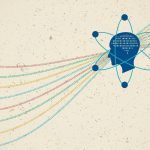AI and Big Data have both been boons to the corporations that use them. They make it simpler for data analysts to understand the interests of the demographics being addressed, and they can help companies large and small improve the appeal of their products and advertisements. There has been, however, a natural backlash against the use of AI and Big Data. Many sources have cited … [Read more...] about Ethical Concerns for AI and Big Data
Big Data
Learn everything you need to know about big data. Find out how companies are using this revolutionary technology and what it means for your business strategy.
A Brief History of AI
This article appeared on Medium, it has been awarded the Silver badge by KDnuggets and the blog has been also recognized as one of top 50 AI blogs by Feedspot. I. The origins In spite of all the current hype, AI is not a new field of study, but it has its ground in the fifties. If we exclude the pure philosophical reasoning path that goes from the Ancient Greek to Hobbes, … [Read more...] about A Brief History of AI
Big Data Contracts Shouldn’t Cause Big Headaches
With every innovation in the world of big data and analytics, corporate IT departments dive into new contracts with vendors to stay ahead of the competition. This is only natural, considering that the cost of collecting and maintaining data is one of the heaviest cost centres on a CIOs balance sheet. But, in a world where F.O.M.O., the fear of missing out, is guiding decision … [Read more...] about Big Data Contracts Shouldn’t Cause Big Headaches
Ten Major Challenges of Big Data Analytics in the Healthcare Industry of Today
The hype surrounding big data analytics in healthcare can be termed as challenging, but inescapable with the providers like Datafloq feeling the highest pinch of it. The need to reliably store the data today, safely and securely, and be sure that it will be efficiently accessible particularly useful in healthcare when needed adds to the excitement. Big data is long, complicated … [Read more...] about Ten Major Challenges of Big Data Analytics in the Healthcare Industry of Today
The Dichotomy Between Data Science and Business Analytics
As an analytics professional, I take a keen interest in trends of all sorts. Thanks to Google Trends, we don't have to question the accuracy of this trend “ in my business, any other trend can and will be questioned six ways from Sunday! I know that IT investments are no popularity contests, but I think search term traffic is a good proxy for what interests businesses worldwide … [Read more...] about The Dichotomy Between Data Science and Business Analytics
What is big data?
Big data is a term that refers to the massive amount of digital data created and shared every day. Big data can transform how we live, work, and communicate. It can be used to improve everything from public health and urban planning to business and marketing.
Big data is also changing the way we think about privacy and security. The volume, velocity, and variety of big data present challenges and opportunities for organizations and individuals. Regardless, big data is here to stay, and its impact will only continue to grow in the years to come.
What is big data analytics?
Big data analytics is the process of turning large, complex data sets into actionable insights. Businesses use various analytical tools and techniques, including machine learning and statistical analysis, to do this.
Big data analytics can be used to improve decision-making in areas like marketing, operations, and customer service. It can also be used to identify new business opportunities and optimize existing processes. With the help of big data analysis, businesses can gain a competitive edge by using their data better.
Want to learn more about big data? Datafloq has courses available. Contact us to get started.
When was big data introduced?
The term big data was coined in the 1990s, with some giving credit to John Mashey for popularizing the term. However, the concept of big data has been around for much longer.
Where does big data come from?
In the early days of computing, scientists and businesses began to realize that the amount of data being generated was increasing exponentially. As a result, they began to develop new methods for storing and processing data.
Over time, these methods have become increasingly sophisticated and have played a key role in enabling businesses to make sense of vast amounts of information. Today, big data is used in various industries, from retail to healthcare, and its importance is only likely to grow in the years to come.
What are examples of big data?
One of the most common examples of big data is social media data. With over 2 billion active users, Facebook generates a huge amount of data every day. This includes information on user interactions, posts, and even location data. Analyzing this data can help companies better understand their customers and target their marketing efforts.
Another example of big data is GPS signals. These signals are constantly being generated by devices like cell phones and fitness trackers. When combined with other data sets, GPS signals can be used to provide insights into everything from traffic patterns to human behavior. Finally, weather patterns are another type of big data set. By tracking these patterns over time, scientists can better understand the impact of climate change and develop strategies for mitigating its effects.
How do companies use big data?
Companies use big data in marketing, product development, and customer service. By analyzing large data sets, businesses can identify patterns and trends that would be otherwise difficult to spot. For example, a company might use big data to track customer behavior patterns to improve its marketing efforts.
Alternatively, a company might use big data to improve its products by identifying areas where customers are most likely to experience problems. For instance, big data can be used to improve customer service by finding pain points in the customer journey. Ultimately, big data provides companies with a valuable tool for gaining insights into their business operations.






